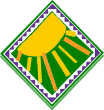Design and Technology
Intent
At Summerlea School our aim is to ensure that the children are taught the subject of Design and Technology as specified in the Early Years Foundation Framework and National Curriculum.
Design and Technology prepares children to participate in an ever-changing technological world. They learn to think creatively to improve the quality of life by looking for and responding to human needs, wants and interests. They combine their understanding of relevant and past design and technology with practical skills to design, make and evaluate their own products.
At Summerlea Design and Technology offers children the opportunity to:
- Develop creativity, resilience and evaluative skills which will support them in their later lives.
- Understand and be able to implement the Design and Technology process from conception to the finished product.
- Participate in our ever-changing technological world by becoming discriminating, informed users and innovators of products.
- Learn to think creatively to improve the quality of life by looking for and responding to human needs, wants and interests.
- Combine their understanding of relevant and past design and technology with practical skills to design, make and evaluate their own products.
- Understand and apply the principles of nutrition and learn how to cook.
Implementation
In Key Stages 1 and 2 Design and Technology is taught through the teaching of well-planned lessons using the National Curriculum, the D&T Association ‘Projects on a Page’ and other resources. In the Foundation stage it is taught in a hands–on, child led way, following the guidance in the Early Years Foundation Stage Curriculum. All lessons are planned and adapted to teach the children in the most beneficial way, encouraging cross-curricular links whilst ensuring that Design and Technology remains the main focus of the lessons, when stipulated to be so in the planning.
Key Stages 1 and 2
Each aspect of Design and Technology is visited at least once in both Key Stage 1 and Key Stage 2 (with the exception of Electricity, which is only required to be taught in Key Stage 2 and is cross-curricular with Science.) Every class carries out three Design and Technology projects per year (2 projects in year 6), one of which is a food based project, to develop the children’s cooking skills and enhance their knowledge and understanding of healthy eating and nutrition. In Key Stage 2 children are given the opportunity to look at key events and individuals in Design and Technology that have helped shape the world.
Foundation Stage
In our EYFS classes the children are given the opportunity to find out about the world they live in and the role Design &Technology plays within it through a number of ways, including:
- Asking questions about how things work
- Learning about a variety of customs and cultures
- Investigating and using a number of construction kits, materials, tools and products.
- Developing making skills.
This wide range of Design and Technology experiences the children encounter in the Foundation Stage provides a good basis for future learning in Design and Technology in Key Stages 1 and 2.
Annually, as a School we take part in Dragon’s Den Week, a competition to design and make products to sell to raise money for the school. This provides high-quality cross-curricular links, notably in mathematics, English and art, whilst teaching key Design and Technology skills with a real-life outcome.
Assessment of children's learning in Design and Technology is an ongoing monitoring of children's understanding, knowledge and skills by the class teacher, throughout lessons. The children are assessed against the skills set out by the National Curriculum. This assessment is then used to inform differentiation, support and challenge required by the children.
Design and Technology is also monitored by the subject leader throughout the year in the form of planning and book (Learning Journal) scrutiny, lesson observations, looking at outcomes and pupil interviews to discuss pupil’s learning and understanding and establish the impact of the teaching taking place.
EYFS pupils' progress and attainment is tracked using the Early Learning Goals, informing teachers whether each individual child is below expected, at expected or above expected attainment for their age.
The Design and Technology Leader is supported by a School Governor linked to the subject.
Impact
As a result of a well-structured and planned curriculum, pupils understand Design and Technology as a process of plan, make and evaluate, and they understand and are able to discuss, the relevance to their everyday lives.
During Dragons’ Den week pupils understand why creativity and consumer opinion is important, as the most popular designs make the most profit, resulting in the most money for School resources.
In food technology pupils gain knowledge of how to cook a range of increasingly complex foods and an awareness of sustainability and where the different foods come from.
Forest School presents the pupils with a wide range of hands-on, real-life problems and design decisions, as well as nurturing team work skills and resilience.
To view our D&T curriculum, click here.

